What does it mean to be a happy country? The World Happiness Report points the way to life satisfaction for citizens.
Frigid temperatures, dark winter days, a breathtakingly high cost of living: who would ever want to live in a place like that? As it turns out, that is precisely where one can find the happiest people on planet Earth. Finland conquered the United Nations World Happiness Report’s top spot for the sixth year in a row, and not because there is something in the icy waters of this nation of just 5.6 million people. Finland is not the richest nation either among the 143 countries and territories surveyed by Gallup World Poll: more than 25 other countries beat the country’s GDP per capita, but Nordic countries in general score well.
Happiest Countries Embrace Social Support
What does it even mean to be a happy country in a world rattled by war, inequality and political divisions? It is often said that even in the worst of times there is joy to be found, and the World Happiness Report rankings back this adage with plenty of data. Since the ranking was launched in 2013, the researchers of the Sustainable Development Solutions Network—the United Nations nonprofit designed to push for broader measures of global happiness and health, have demonstrated time and time again that the happiest countries have high levels of trust and are more resilient when a crisis hits.
This year’s report underscores that the post-COVID era is marked by large increases in benevolence for all generations, but especially for the Millennials and Generation Z, who—according to the researchers—are more likely than their predecessors to help others in need.
Yet, in many countries, the overall individual perception of well-being differs greatly between the young and the old: “In some cases, these differences favor the old, as in the United States and Canada, where the rankings for those aged 60 and older are 50 or more places higher than for those under 30. In other cases, especially in Central and Eastern Europe, the reverse is true, with many rankings being more than 40 places higher for the young than for the old.”
Nordic Nations Lead The Pack
Nordic countries continue to excel, as they have historically: Finland tops the list, but Sweden and Denmark also rank well, as do the Netherlands and Iceland.
What sets them apart from nations with lower scores is support systems that can soften the impact of shocks. Whether through support for mental health and well-being or a strong sense of leaving a positive legacy for future generations through efforts like the sustainable development solutions network, happy country citizens report better life evaluations and more positive assessments of their own lives. What is exactly the right mix of ingredients for happiness? High GDP per capita, social support in times of need, absence of corruption in government, healthy life expectancy, freedom to make life choices, generosity or charity towards others: these are the original six key factors that the researchers have used over time in their report on global life satisfaction.
In their 158-page study, the happiness experts offer plenty of detailed charts, graphs and historical data. As an alternative, you can skip all that and ask yourself a simple question: how worried would you be if you lost your wallet? To feel that it would be returned by a police officer, a neighbor or a stranger, tells a lot about how happy you and the people around you are. Not only that, it is a more powerful predictor of individual well-being than wealth. Money—as the report has repeatedly demonstrated—does not buy happiness.
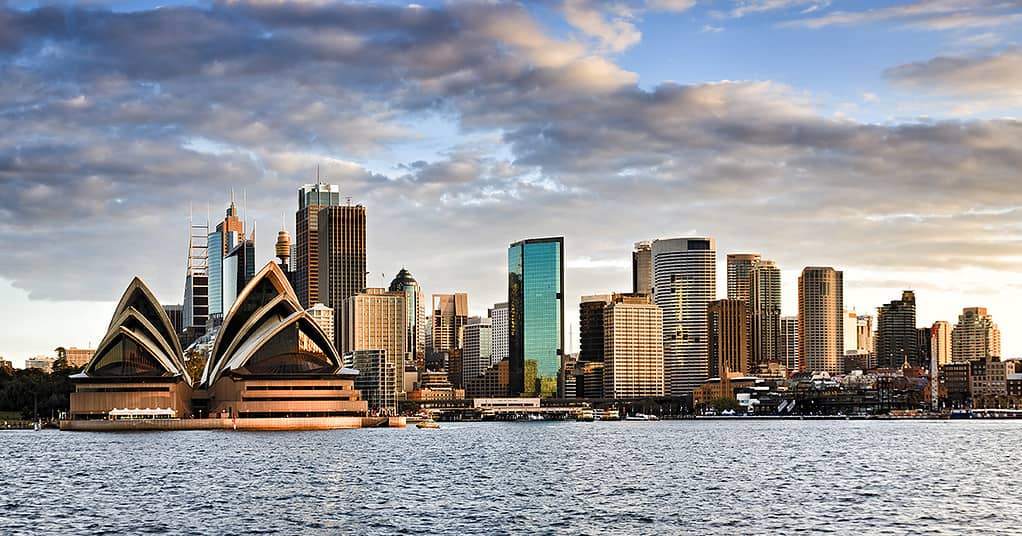
Click here to view Australia economic GDP and economic data.
#10 | AUSTRALIA🇦🇺
Australia has vaulted back into the top 10 of the World Happiness Report for the first time since 2018. However, its total score in terms of life evaluation (7057) is lower than last year (7095), and the advancement in the ranking can be attributed to the even larger deterioration experienced by New Zealand, which occupied the 10th spot in 2023. In both cases, the report notes, the level of overall happiness is much lower among the youth and rises gradually with age to peak the highest among the old.
Still, ranking amongst the 10 happiest countries globally is nothing to complain about. With their high wages, employment rate, and life expectancy—and putting aside their outstanding marks when it comes to altruism (about 40% of them are registered as volunteers)—Australians can consider themselves true winners.
Click here to view Australia economic GDP and economic data.
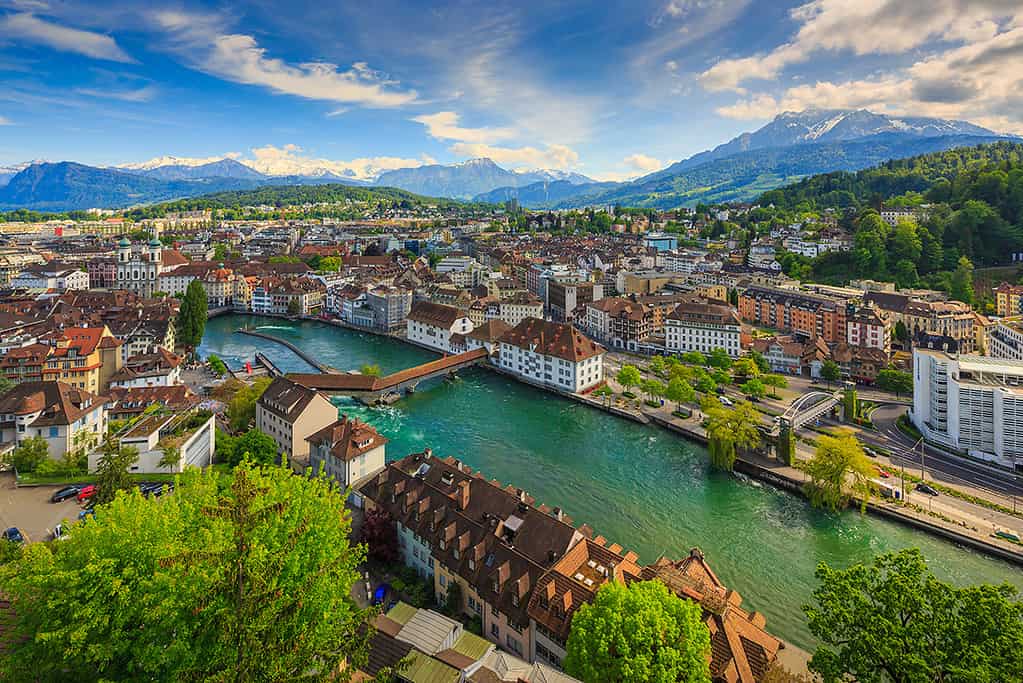
#9 | SWITZERLAND🇨🇭
After conquering first place in the 2015 World Happiness Report, Switzerland slowly started losing ground. Indeed, while the Swiss might be feeling crankier than usual, they are far from miserable.
Fear not, Switzerland remains a country that seems to have been created precisely for the pursuit of happiness. It can boast postcard landscapes and clean air, state-of-the-art infrastructure and education services, both great wealth and equal distribution of resources. Making chocolate and cheese and not war helps too: Switzerland is notoriously neutral and has not been involved in a war since 1847. Or has it? In a sharp break with its past neutrality, Switzerland joined the European Union in imposing sanctions on Russia for its invasion of Ukraine.
Click here to view Switzerland economic GDP and economic data.
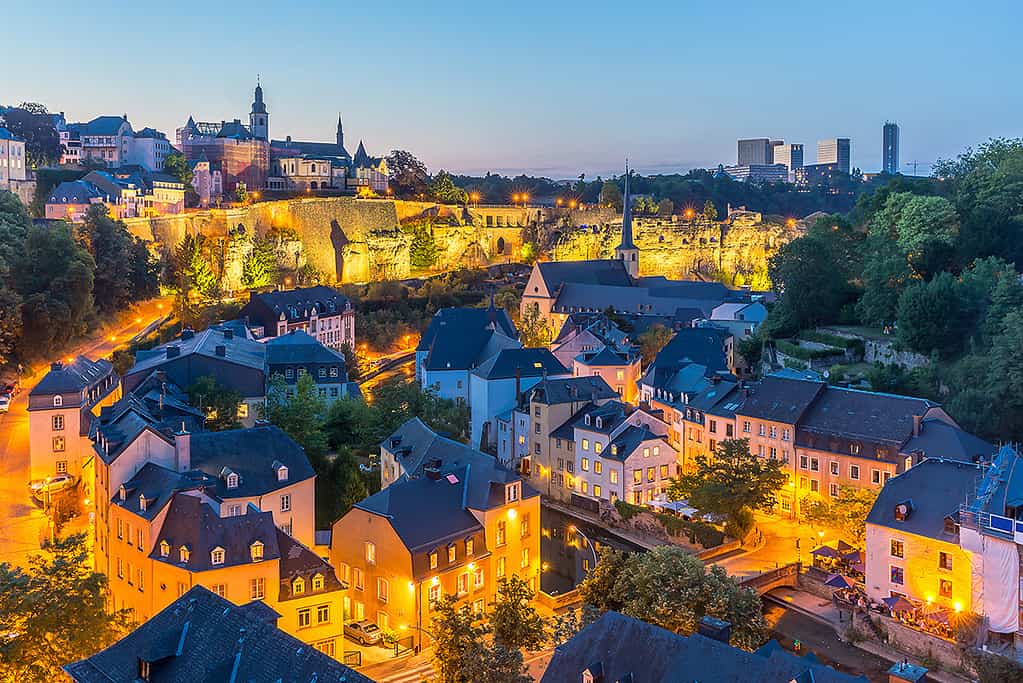
#8 | LUXEMBOURG🇱🇺
Just eight years ago, this land of castles, lakes and rolling hills occupied the 20th position in the happiness ranking. Luxembourg made it into the top 10 in the 2020 edition of the report, and has not fallen out of it since.
This very small nation of less than 700,000 people scores above average in social connections, subjective well-being, freedom to make life choices and life expectancy. And while money cannot buy happiness, Luxembourg being among the richest countries in the world where workers enjoy an average gross salary of almost 7,000 euros per month certainly doesn’t hurt.
Click here to view Luxembourg economic GDP and economic data.
#7 | NORWAY🇳🇴
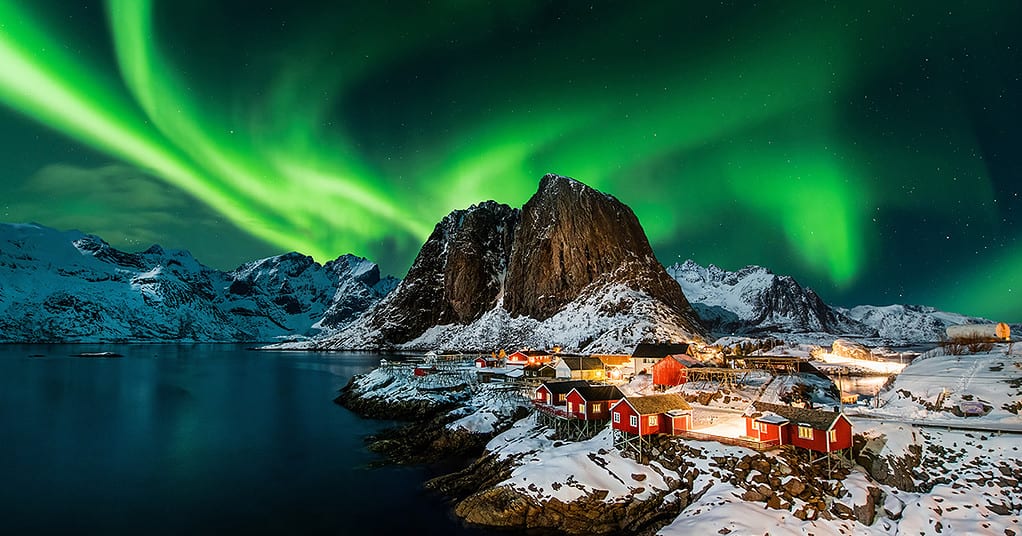
It is one of the most prosperous countries in the world—and one of the most virtuous. Norwegians think that democracy should enforce social and economic equality. The result is less income and gender disparity, excellent free healthcare and more confidence in elected officials. Social and institutional trust are essential factors in one’s sense of personal well-being, and the Covid-19 pandemic proved it starkly. In that sense, Norway has been particularly successful in keeping mortality rates low and mitigating the economic impact of lockdowns.
While over the past few years Norway has been slipping in the ranking (it occupied the top spot in 2017), there is no doubt that its social model remains an extraordinary success story.
Click here to view Norway economic GDP and economic data.
#6 | THE NETHERLANDS🇳🇱
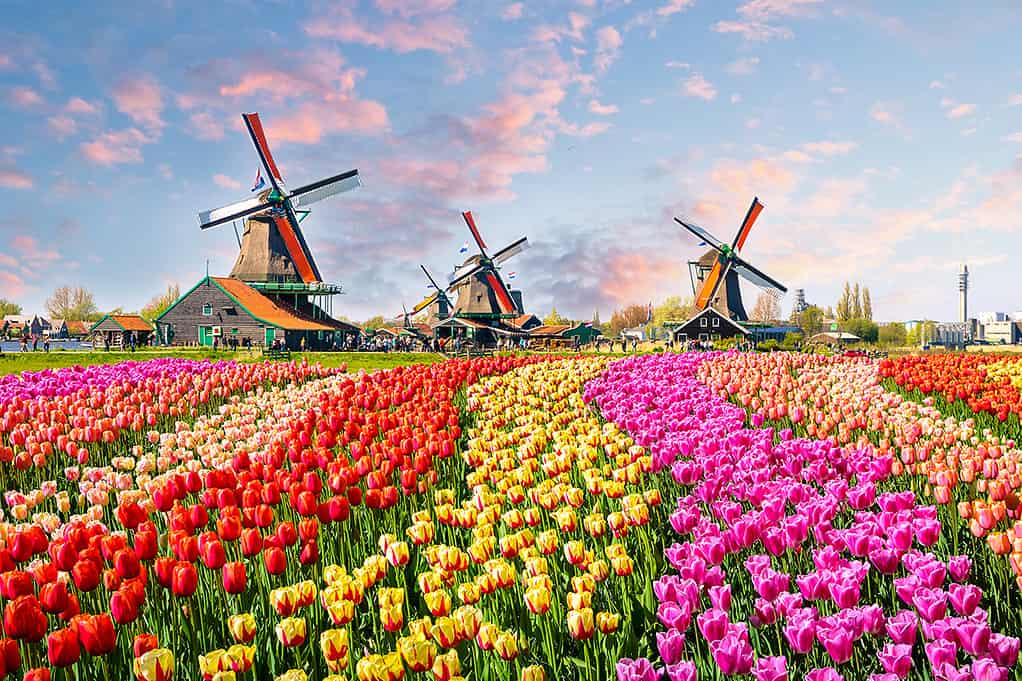
Losing one spot in this year’s ranking, people in the Netherlands still have very few reasons to complain. The Dutch are more affluent, educated, and free to make their own life choices than at any point in their country’s history.
This year’s Happiness Report underscores that the top 10 no longer include any of the world’s most populous nations, with the Netherlands and Australia being the only ones with populations exceeding 15 million. Remarkably, among the countries in the top 10, the Netherlands also showed the smallest gap between the most and least happy people: in other words, the Dutch experience similar levels of happiness, and they are quite high.
Click here to view Netherlands economic GDP and economic data.
#5 | ISRAEL🇮🇱

It might be surprising to find Israel close to the very top of the UN Happiness Index amid the country’s ongoing war with Gaza. There is a simple explanation: the scoring for individual nations is determined by averaging survey data from the most recent three years, specifically from 2021 through 2023. Still, the collective sense of empathy and solidarity, and thereby happiness levels—as also proved by the Covid-19 pandemic—tend to rise when a crisis hits.
It is also worth noting that since the index was released for the first time a decade ago Israel never slipped below the 14th spot. But how could this nation of roughly 10 million—surrounded by hostile neighbors and perpetually embroiled in conflict—truly be so happy? Easy answer: happiness is not just determined by the presence or the lack of one given element. Israel is a rich and vibrant country where people can rely on strong community ties and feel they can decide how to pursue their goals in life.
Click here to view Israel economic GDP and economic data.
#4 | SWEDEN🇸🇪
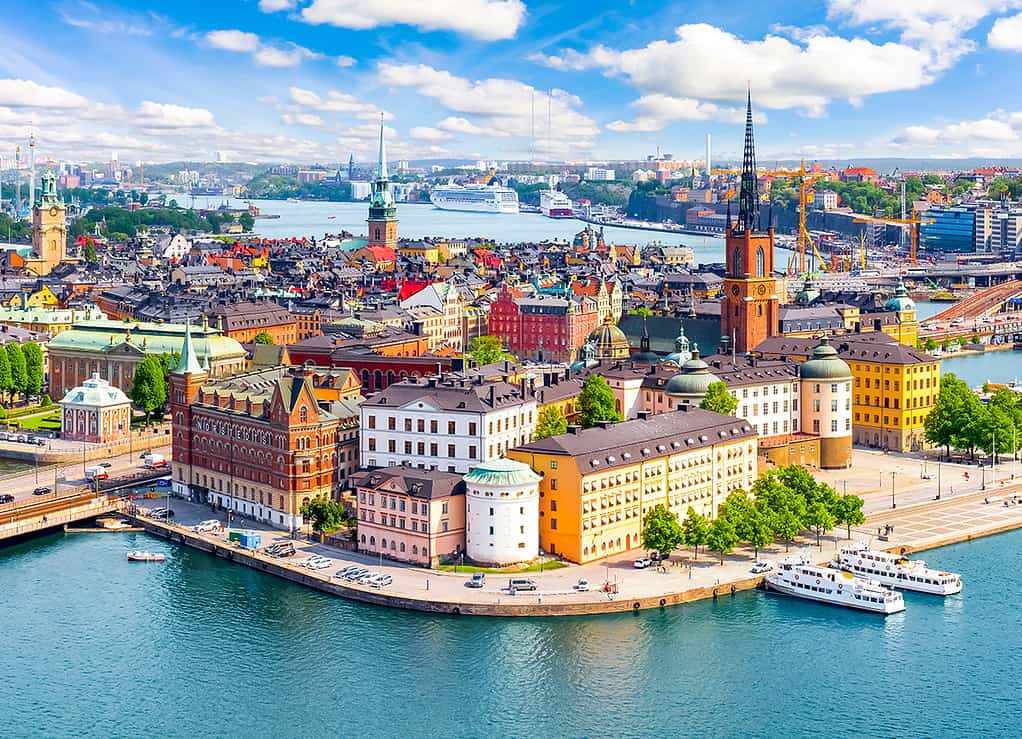
Sweden jumps two spots in the happiness ranking from the number six position it occupied last year. Sweden has consistently ranked high in the list thanks to its affluence, strong social support networks, and perceived honesty and accountability of its institutions. The Scandinavian country also boasts an enviable work-life balance: it offers the longest paid vacation period compared to any other country in the world—41 days—while new parents can take up 480 days during which they receive around 80% of their salary.
One downside? Taxes are high: the personal income tax rate is close to 60%. Fiscal revenues, however, are used for universal healthcare, free university, and a great number of social programs to help people learn new skills and take advantage of job opportunities.
Click here to view Sweden economic GDP and economic data.
#3 | ICELAND🇮🇸
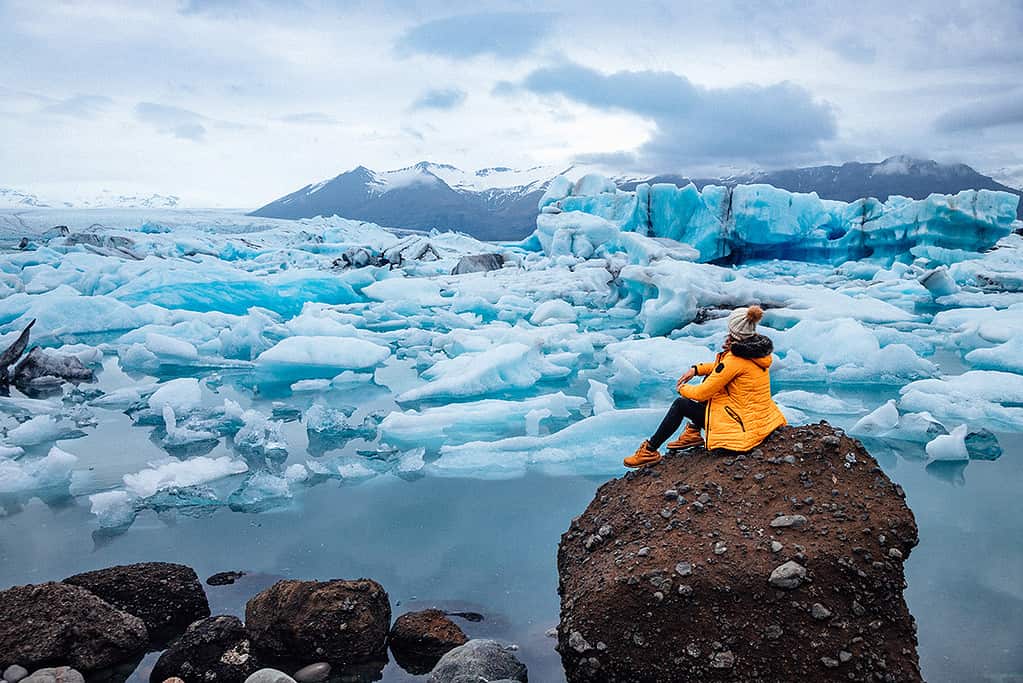
Iceland routinely tops a wide variety of quality of life rankings. Chosen by both the World Economic Forum as the best country in the world for gender equality and the Institute for Economics and Peace as the most peaceful for more than 10 years in a row, this republic of about 390,000 is one of the most environmentally friendly too. Iceland have also the highest per capita publication of books: 10% of its residents will embark on the noble quest of penning one in their lifetime, which must be something that makes them really happy.
Iceland has sat in the third position in the happiness ranking since 2022, and with its enchanting landscapes, low taxes and free healthcare and education, it is no surprise that it is so close to the top of the UN index.
Click here to view Iceland economic GDP and economic data.
#2 | DENMARK🇩🇰
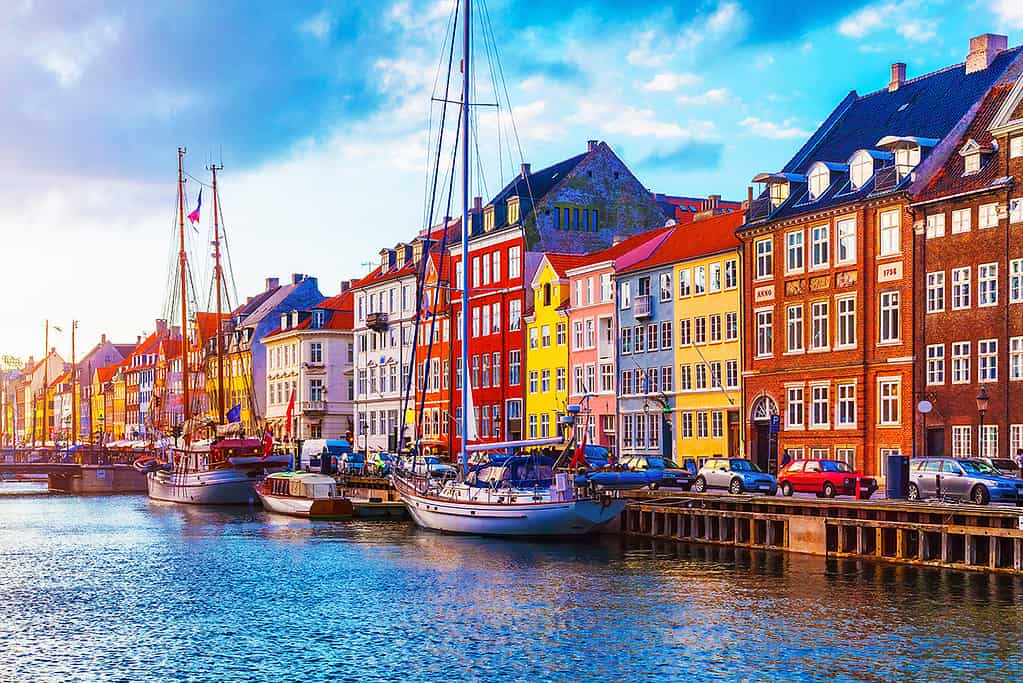
Coming in runner-up for the sixth year in a row, Denmark topped the list in the first report, in 2012, and again in 2013 and 2016. Nordic countries, the authors of the report have noted in the past, share similar social and political models and values. That explains why all of them feature among the 10 happiest countries in the world and why they often swap places on the happiness podium.
Danes score high when it comes to work-life balance, environment and healthcare. They also pride themself on having one of the smallest wealth gaps in the world—and a society where people share both the burdens and the benefits equally, the report shows, is a happier society.
Click here to view Denmark economic GDP and economic data.
#1 | FINLAND🇫🇮
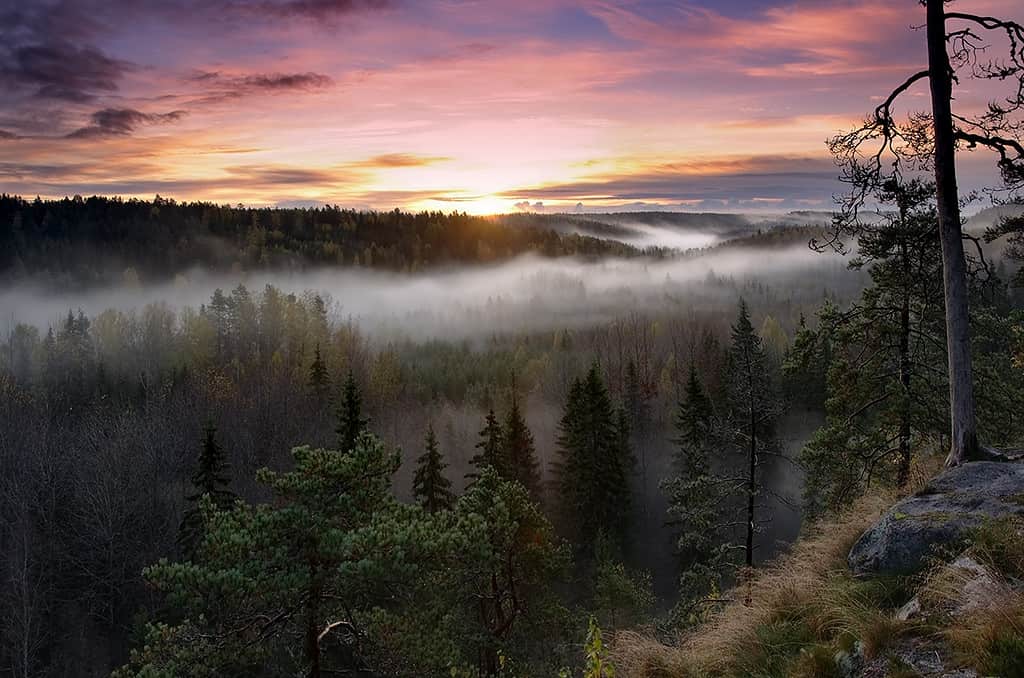
Finland did it again. It vaulted from fifth place to the top of the ranking in 2018 and seems determined to stay firmly put. Finns also have a lot going for them. This country of very happy people enjoys high standards of living, a thriving cultural life and 3 million very relaxing saunas. With more forest per square mile than any other European nation, many Finns also credit their connection with nature and the outdoors for their satisfaction with life.
To not be selfish, the reigning champion of happiness even offers tips to the rest of the world on how to live better. Along with a lot of swimming, hiking and biking, through its tourism organization it recommends long walks in forests overflowing with berries, mushrooms and wild herbs. You’ve never seen anything remotely like that where you live? That’s exactly point: they are telling you to come visit.
Click here to view Finland economic GDP and economic data.
| 1 | Finland | 73 | Bolivia | |
| 2 | Denmark | 74 | Ecuador | |
| 3 | Iceland | 75 | Kyrgyzstan | |
| 4 | Sweden | 76 | Montenegro | |
| 5 | Israel | 77 | Mongolia | |
| 6 | Netherlands | 78 | Colombia | |
| 7 | Norway | 79 | Venezuela | |
| 8 | Luxembourg | 80 | Indonesia | |
| 9 | Switzerland | 81 | Bulgaria | |
| 10 | Australia | 82 | Armenia | |
| 11 | New Zealand | 83 | South Africa | |
| 12 | Costa Rica | 84 | North Macedonia | |
| 13 | Kuwait | 85 | Algeria | |
| 14 | Austria | 86 | Hong Kong SAR | |
| 15 | Canada | 87 | Albania | |
| 16 | Belgium | 88 | Tajikistan | |
| 17 | Ireland | 89 | Congo (Brazzaville) | |
| 18 | Czech Republic | 90 | Mozambique | |
| 19 | Lithuania | 91 | Georgia | |
| 20 | United Kingdom | 92 | Iraq | |
| 21 | Slovenia | 93 | Nepal | |
| 22 | United Arab Emirates | 94 | Laos | |
| 23 | United States | 95 | Gabon | |
| 24 | Germany | 96 | Ivory Coast | |
| 25 | Mexico | 97 | Guinea | |
| 26 | Uruguay | 98 | Türkiye | |
| 27 | France | 99 | Senegal | |
| 28 | Saudi Arabia | 100 | Iran | |
| 29 | Kosovo | 101 | Azerbaijan | |
| 30 | Singapore | 102 | Nigeria | |
| 31 | Taiwan | 103 | State of Palestine | |
| 32 | Romania | 104 | Cameroon | |
| 33 | El Salvador | 105 | Ukraine | |
| 34 | Estonia | 106 | Namibia | |
| 35 | Poland | 107 | Morocco | |
| 36 | Spain | 108 | Pakistan | |
| 37 | Serbia | 109 | Niger | |
| 38 | Chile | 110 | Burkina Faso | |
| 39 | Panama | 111 | Mauritania | |
| 40 | Malta | 112 | Gambia | |
| 41 | Italy | 113 | Chad | |
| 42 | Guatemala | 114 | Kenya | |
| 43 | Nicaragua | 115 | Tunisia | |
| 44 | Brazil | 116 | Benin | |
| 45 | Slovakia | 117 | Uganda | |
| 46 | Latvia | 118 | Myanmar | |
| 47 | Uzbekistan | 119 | Cambodia | |
| 48 | Argentina | 120 | Ghana | |
| 49 | Kazakhstan | 121 | Liberia | |
| 50 | Cyprus | 122 | Mali | |
| 51 | Japan | 123 | Madagascar | |
| 52 | South Korea | 124 | Togo | |
| 53 | Philippines | 125 | Jordan | |
| 54 | Vietnam | 126 | India | |
| 55 | Portugal | 127 | Egypt | |
| 56 | Hungary | 128 | Sri Lanka | |
| 57 | Paraguay | 129 | Bangladesh | |
| 58 | Thailand | 130 | Ethiopia | |
| 59 | Malaysia | 131 | Tanzania | |
| 60 | China | 132 | Comoros | |
| 61 | Honduras | 133 | Yemen | |
| 62 | Bahrain | 134 | Zambia | |
| 63 | Croatia | 135 | Eswatini | |
| 64 | Greece | 136 | Malawi | |
| 65 | Bosnia and Herzegovina | 137 | Botswana | |
| 66 | Libya | 138 | Zimbabwe | |
| 67 | Jamaica | 139 | Congo (Kinshasa) | |
| 68 | Peru | 140 | Sierra Leone | |
| 69 | Dominican Republic | 141 | Lesotho | |
| 70 | Mauritius | 142 | Lebanon | |
| 71 | Moldova | 143 | Afghanistan | |
| 72 | Russia | |||
| Source: The UN’s 2024 World Happiness Report. | ||||
[ad_2]
Source

